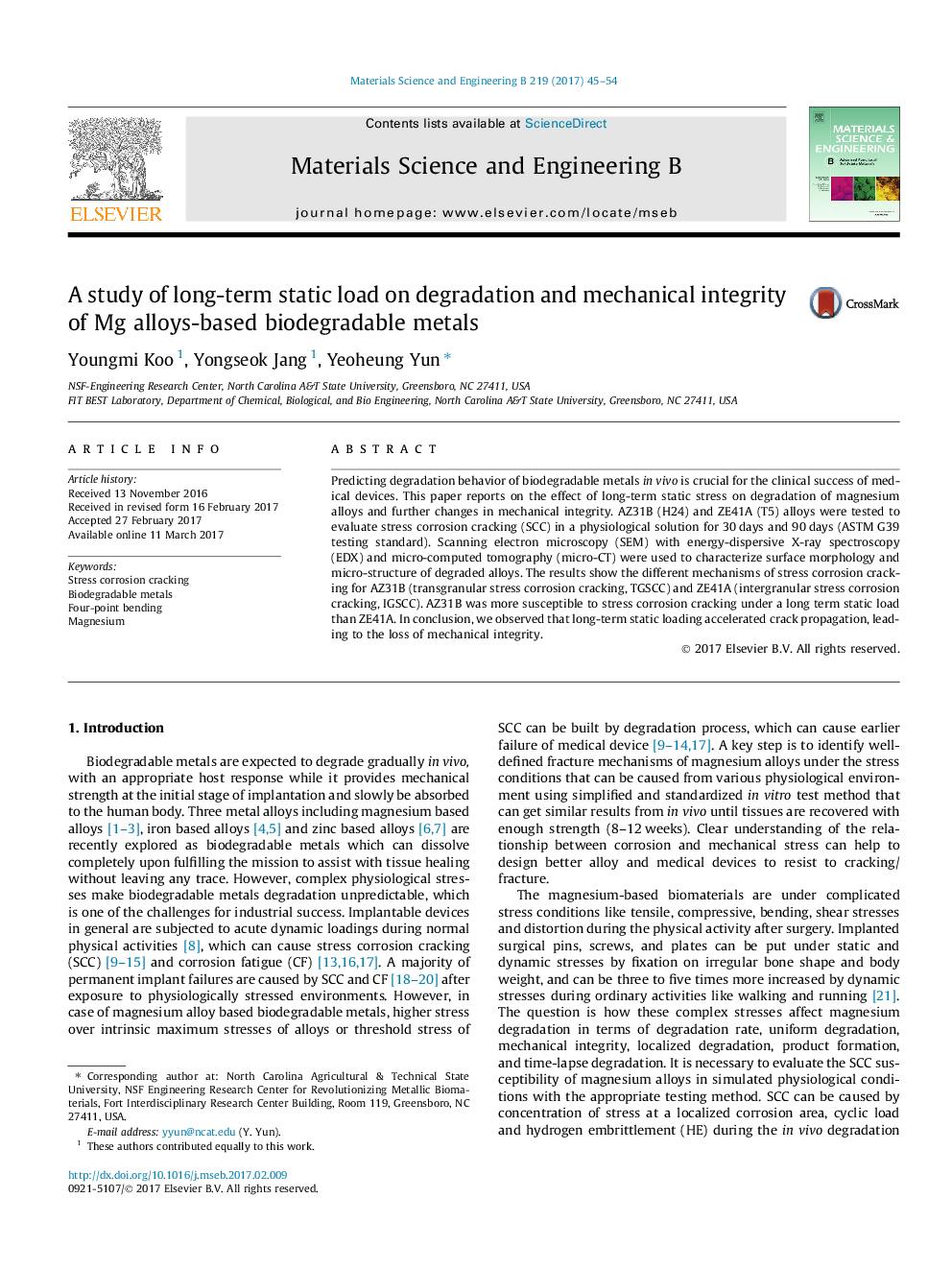| Article ID | Journal | Published Year | Pages | File Type |
|---|---|---|---|---|
| 5448805 | Materials Science and Engineering: B | 2017 | 10 Pages |
Abstract
Predicting degradation behavior of biodegradable metals in vivo is crucial for the clinical success of medical devices. This paper reports on the effect of long-term static stress on degradation of magnesium alloys and further changes in mechanical integrity. AZ31B (H24) and ZE41A (T5) alloys were tested to evaluate stress corrosion cracking (SCC) in a physiological solution for 30Â days and 90Â days (ASTM G39 testing standard). Scanning electron microscopy (SEM) with energy-dispersive X-ray spectroscopy (EDX) and micro-computed tomography (micro-CT) were used to characterize surface morphology and micro-structure of degraded alloys. The results show the different mechanisms of stress corrosion cracking for AZ31B (transgranular stress corrosion cracking, TGSCC) and ZE41A (intergranular stress corrosion cracking, IGSCC). AZ31B was more susceptible to stress corrosion cracking under a long term static load than ZE41A. In conclusion, we observed that long-term static loading accelerated crack propagation, leading to the loss of mechanical integrity.
Related Topics
Physical Sciences and Engineering
Materials Science
Electronic, Optical and Magnetic Materials
Authors
Youngmi Koo, Yongseok Jang, Yeoheung Yun,
